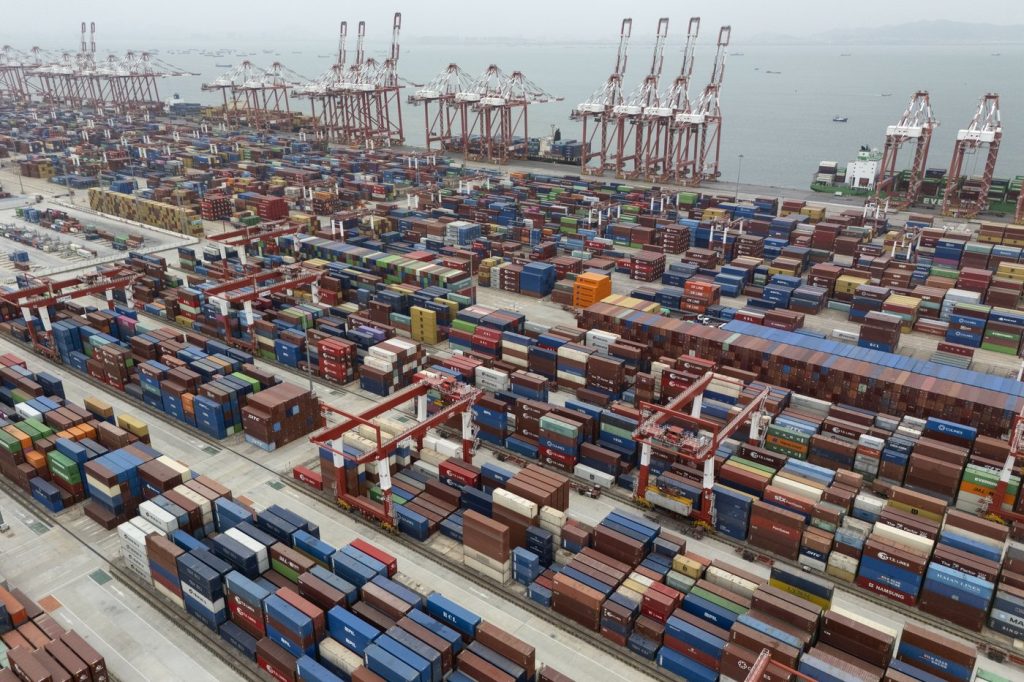Nearly 200 shipping companies announced on Monday their call for the world's largest maritime nations to adopt regulations that include the first-ever global fee on greenhouse gases, aimed at reducing emissions from the shipping sector. The initiative is spearheaded by the Getting to Zero Coalition, which comprises companies, governments, and intergovernmental organizations. The coalition is urging member states of the International Maritime Organization (IMO) to support the adoption of these regulations that promote green shipping, as they prepare for their meeting in London next month.
Jesse Fahnestock, who leads decarbonization efforts at the Global Maritime Forum, emphasized the importance of industry voices in favor of these regulations being heard due to the political significance surrounding this decision. The U.S. administration, notably the Trump administration, firmly opposes the proposal under consideration by the IMO and has threatened retaliatory measures against nations that support it. The U.S. government described the proposed regulatory framework as an "effectively a global carbon tax on Americans levied by an unaccountable U.N. organization," as articulated by the U.S. Secretaries of State, Commerce, Energy, and Transportation in a joint statement last month.
Despite the federal opposition, U.S.-based shipping companies have expressed their support for the initiative. The Chamber of Shipping of America seeks a unified global system rather than multiple regional regulations that could lead to double charges for emissions based on shipping routes. Kathy Metcalf, the chamber's president emeritus, shared this perspective.
Shipping emissions have surged in the last decade, now accounting for approximately 3% of global greenhouse gas emissions. This increase is attributed to the growing size of vessels, which results in higher fossil fuel consumption while delivering greater cargo loads. The IMO, responsible for regulating international shipping, has established a target for the industry to achieve net-zero greenhouse gas emissions by around 2050. The organization is also committed to the broader use of zero or near-zero emission fuels.
In April, IMO member states reached an agreement on a regulatory framework to impose a minimum fee on each ton of greenhouse gases emitted by ships exceeding certain thresholds and to set a marine fuel standard aimed at phasing in cleaner fuels. The IMO traditionally aims for consensus in decision-making but encountered the necessity of voting on this occasion, with the U.S. notably absent.
The upcoming vital decision will determine if the proposed regulations will come into force by 2027. If accepted, these rules would apply to large oceangoing ships with a gross tonnage exceeding 5,000, which are responsible for 85% of international shipping's total carbon emissions, according to the IMO. Delaine McCullough, president of the Clean Shipping Coalition and Ocean Conservancy shipping program director, warned that failure to agree on these regulations could significantly delay shipping's decarbonization. It would ultimately hinder the sector's ability to contribute effectively to addressing climate change and falling below critical global heating thresholds.
The U.S. secretaries reiterated in their joint statement that other IMO members should take heed of potential U.S. backlash, asserting that they would not hesitate to retaliate or explore remedies for their citizens if support does not align with U.S. interests. They expressed concerns about fees incurred by failing to meet seemingly "unattainable fuel standards and emissions targets," emphasizing that it would increase operational costs and predictably benefit China, a leader in developing cleaner shipping fuels.
Despite U.S. opposition and pressure, a majority of countries reportedly support the proposed regulations. Faig Abbasov from Transport and Environment, a Brussels-based environmental NGO, commented that while the deal reached in April may not have been sufficiently ambitious, it represents a crucial opportunity to initiate the decarbonization of the shipping sector, which can be further strengthened moving forward.
Shipping companies see these regulations as essential for ensuring the certainty needed to invest in cleaner technologies, including alternatives to fossil fuels and the vessels that utilize them. Alongside the Getting to Zero Coalition, the International Chamber of Shipping, which represents over 80% of the world's merchant fleet, advocates for the adoption of these regulations during the upcoming IMO meeting scheduled for October 14 to 17 in London.










